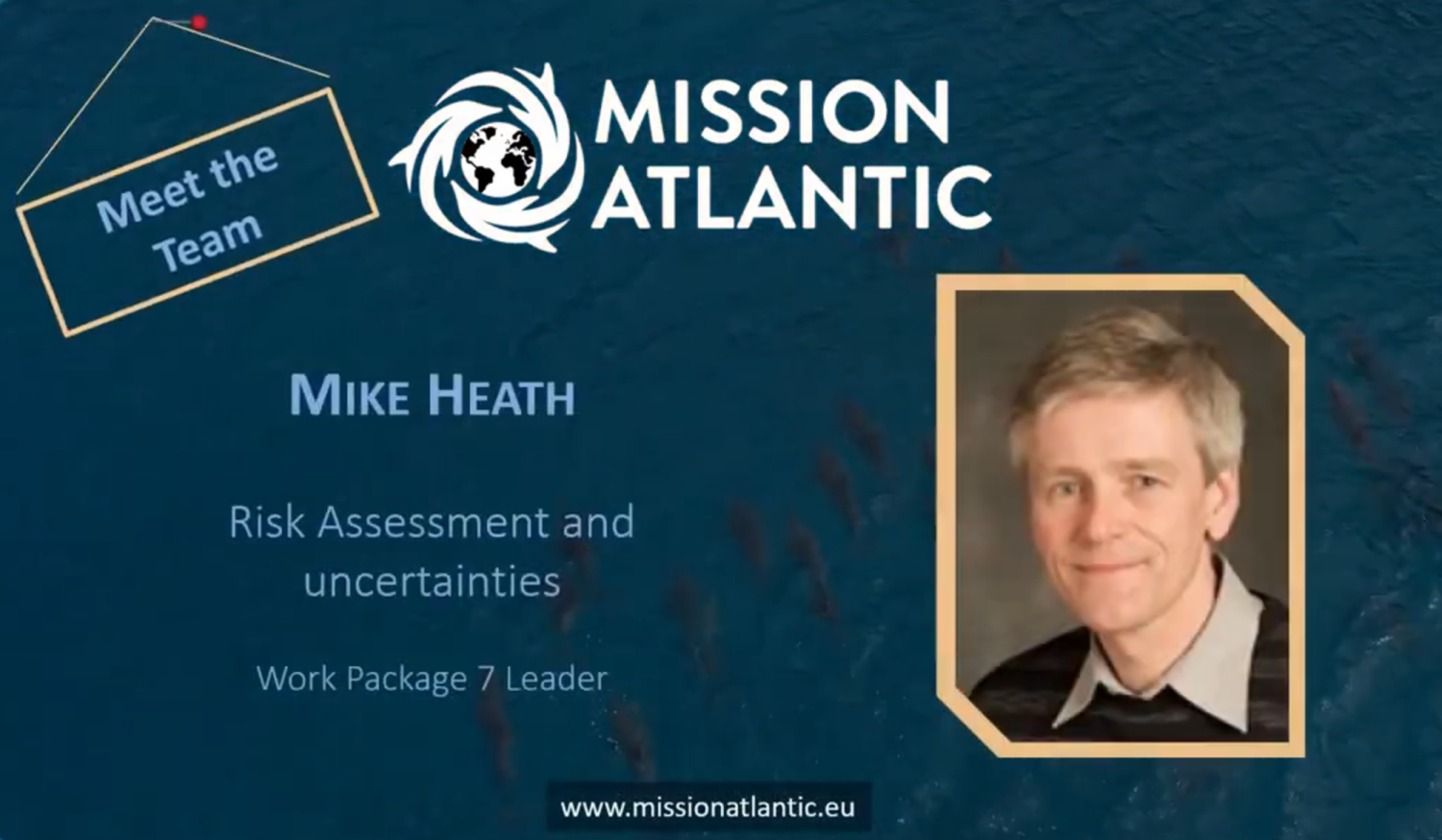Meet the MISSION ATLANTIC Scientists: Michael Heath, Co-Lead on Risk Assessment and uncertainties (WP7)
Where are you from and where are you currently based?
I’m from the UK, Scotland, and work at the University of Strathclyde in Glasgow.
Academic background and research areas:
I completed my PhD in 1982 at Bangor University in Wales, in the School of Marine Sciences. My research field was experimental microbiology and modelling, and the project was on the synchronisation of cell division in populations of a diatom species under light-dark cycles. From there I went to the Marine Laboratory in Aberdeen to work on herring stock assessment and recruitment in the North Sea and west of Scotland – surprisingly there were some similarities in the mathematical models involved. I stayed there until 2010 working on a variety of topics, from cod and haddock ecology, coastal oceanography and eutrophication to ocean scale population dynamics of zooplankton. Then I moved to the Mathematics and Statistics Department at the University of Strathclyde to lead a new marine modelling group, and that’s where I am today. While at Strathclyde I have been building the StrathE2E marine ecosystem model, pulling together data and experiences from the wide range of marine science areas during my time in Aberdeen.
Current role and work within MISSION ATLANTIC:
My research now is almost entirely focussed on further developing the StrathE2E model, and its implementation and use in as wide a range of setting as we can. Mission Atlantic is a huge part of all this – our team at Strathclyde is working with researchers in all of the Case Study regions to build models for their local areas. Then we can do a true comparison of food web dynamics across all the regions using the same model architecture in each case. Making these models as widely accessible as possible is a key part of our mission to enable more people can get a sense of how human activity affects the marine ecosystem.
Do you have anything about the Atlantic Ocean you would like to share?
Climate change and urbanisation are among the key factors leading to rising global inequality and human migrations. We can all see changes in the environment that are happening around us on land, but the same is also happening out of sight in the sea. Somehow, we have to find a way of living that is in a more sustainable balance with nature on land and at sea, and begin to reverse biodiversity loss and erosion of ecosystems. Education is key – so that more people can understand why changes in our way of living are necessary.
Favourite Ocean fact:
Everything in the ocean is interconnected by both currents and the network of who-eats-whom in the food web.
What is your highlight from the project so far?
Working with researchers from around the Atlantic with sense of common purpose that I’ve not seen before in previous projects.
Contact details:
Email: m.heath@strath.ac.uk
